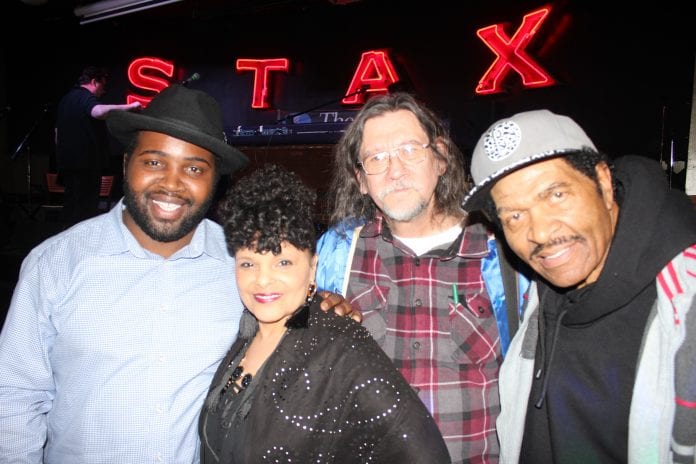by Tracy Sow, Special to The New Tri-State Defender
In a bold move, Barbara Newman, president of the Blues Foundation, added a keynote panel – The Race and Blues – to the 2019 International Blues Challenge, which recently unfolded on Beale Street and concluded at the Orpheum.
There was a nationwide buzz created among highly established African-American artists long before the panel ever convened. A significant reason for the buzz was the inclusion of the young and very talented artist, Marquise Knox, who is always fueling the fire on social media.
The panel also featured blues performers Teeny Tucker, the legendary Bobby Rush, Jim O’Neal of Living Blues Magazine and was moderated by Dr. Noelle Trent, Director of Interpretation, Collections and Education at the National Civil Rights Museum. The panel offered a few eyebrow-raising moments, but nothing explosive.
Bobby Rush reminded the audience change is still needed, but we have truly grown. He reminisced about the early 50s, of being made to perform behind a curtain nightly in a Chicago club. He further explained the difficulties he had convincing other iconic blues legends, such as Bobby Blue Bland and Buddy Guy to get involved with the Blues Foundation.
Jim O’Neal and Teeny Tucker thoughtfully weighed in the discussion with keen insight on everything from women in blues to the current state of the genre. It took a strong moderator to keep Marquise Knox on track, as he focused on everything from lyrics disrespecting African American women to interjecting the politics of Donald Trump.
I later asked Knox, how he felt about the discussion:
“Well, I don’t think it went deep enough into the issues of race and what we as African American artists have to face in this industry. But, it’s a start and I plan to keep talking about the plight of black artists and the struggles of my people.”
Bobby Rush credits Jim O’Neal with his crossover to white audiences. I spoke to Jim about why he felt it was important to participate and what he hoped the audience would take away.
“Living Blues has always been the voice of the blues community and especially for the African-American community,” O’Neal said. “To whites it is just music, but it needs to be recognized as culture.”
I asked Teeny Tucker – The only woman on the panel – if she thought the panel was needed and why.
“A blues and race discussion is needed. Blues isn’t really all about race, but more about the culture and the history of a people,” she said. “Hopefully, any artists who loves and desires to play blues, knows that blues is black music and there wouldn’t be blues without roots that can be traced back to our African ancestors.
“Although, the blues has evolved musically, its culture will forever remain embedded in the souls of black people,” she added.
“Black folks have always graciously shared the blues with other races, but we certainly don’t want them to forget where it originated and derived from,” she said. “We must keep having a dialogue, until everyone gets it!”




